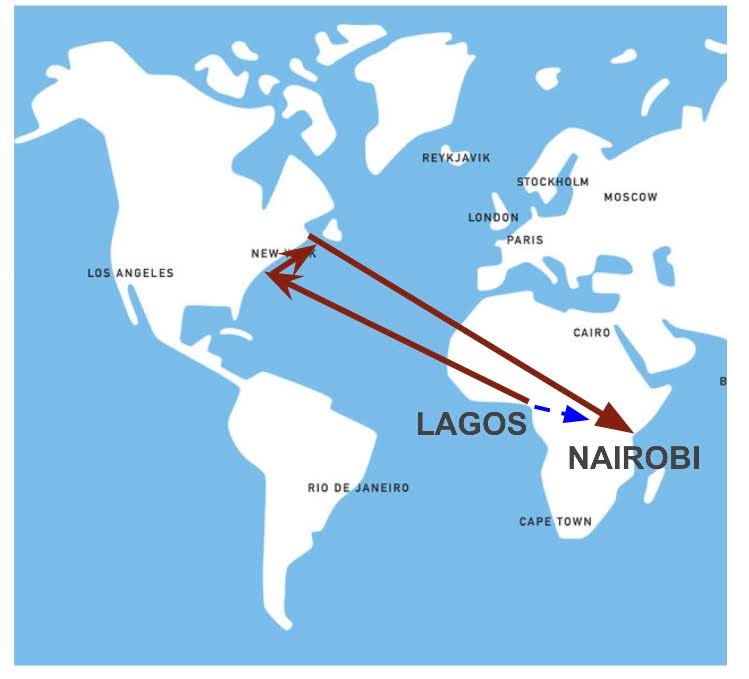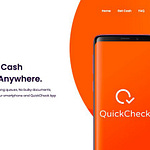Nigerians go gaga over education. Parents strain to send their children to the best schools possible to give them an edge in a country plagued by rampant unemployment. About 15 years ago, my mum told me about her friends who were sending their teenagers to boarding school in Kenya. The school had a track record of churning out MIT and Oxford graduates who blossomed into government ministers and captains of industry. The school sounded ritzy and getting there would cost a pretty penny. Our family friends had to fly from Lagos to London then switch over to another flight from London to Nairobi. It blew my mind that the safest path to travel across Africa from Nigeria to Kenya was through Europe. They repeated this long and expensive journey multiple times a year until each child completed high school. Surely, there had to be a better way!
Traditional cross-border payments are also equally expensive and circuitous. If my mom’s friend, Mrs Ade, wanted to pay her children’s tuition, the payments would similarly travel the world just to cross the continent. Mrs Ade would initiate the transaction in Lagos with her local bank, Access Bank, who would charge a service fee. Access Bank would transfer the funds to their US-based correspondent bank to convert naira to dollars. This correspondent bank would charge a 4-6% fee for foreign exchange before passing the funds onto the correspondent bank of the receiving bank in Kenya. The second correspondent bank, again likely US-based, would charge another 4-6% fee to convert the dollars to Kenyan shillings. Finally, the second correspondent bank would transfer the Kenyan shillings to the receiving bank in Nairobi. This whole process is expensive (up to 10+%) and long (3+ days). Surely, there had to be a better way!
A number of FinTechs such as TransferWise have emerged to disrupt this inefficient system. They offer faster (usually 2 hours) and cheaper service. TransferWise maintains bank accounts in countries across the world. Money is never transferred across borders. Mrs Ade would pay her children’s tuition in naira into TransferWise’s Nigeria account and then TransferWise would pay out the equivalent amount of Kenyan Shillings in Nairobi a few hours later. This system depends on a large network of users providing a steady flow of funds in and out TransferWise’s accounts. Transfers of large amounts of funds on low traffic payment corridors run the risk of delays if TransferWise’s local bank account is insufficiently stocked. While this system is a step up from the traditional cross-border payments, there is still room for improvement.
What if I told you that there was a solution which enabled cross-border transfers in less than 10 minutes and more than 50% cheaper than leading FinTech solutions like TransferWise? Blockchain enabled solutions like Strike by Zap and Send Cash Africa provide this level of service. Here’s how it would work. Mrs Ade initiates the fund transfer on a mobile wallet. Strike instantly exchanges the naira for bitcoin and then bitcoin for Kenyan shillings. Send Cash Africa goes the extra mile and directly deposits the funds in the school’s bank account in Kenya. The volatile price of bitcoin raises concerns that value could be lost during the transfer. Strike mitigates this risk by using the Lightning Network to process the payments in almost real-time. In fact, there’s often an arbitrage opportunity across markets such that the exchange rate is more advantageous than directly exchanging fiat currency.
Each year trillions of dollars are transferred across borders. These transfers run the gamut from consumer to business (C2B) like Mrs Ade through business to business (B2B) like British Airways ordering jets from Boeing. Remittances or person-to-person transfers are a lifeline for many families. Migrants scrimp and save to send funds home to pay for medicine, school, and general upkeep of loved ones. Reducing transfer costs lowers the burden on their shoulders. Blockchain based solutions whether they use cryptocurrency or stablecoins can drive significant efficiencies. Let’s get to it!













